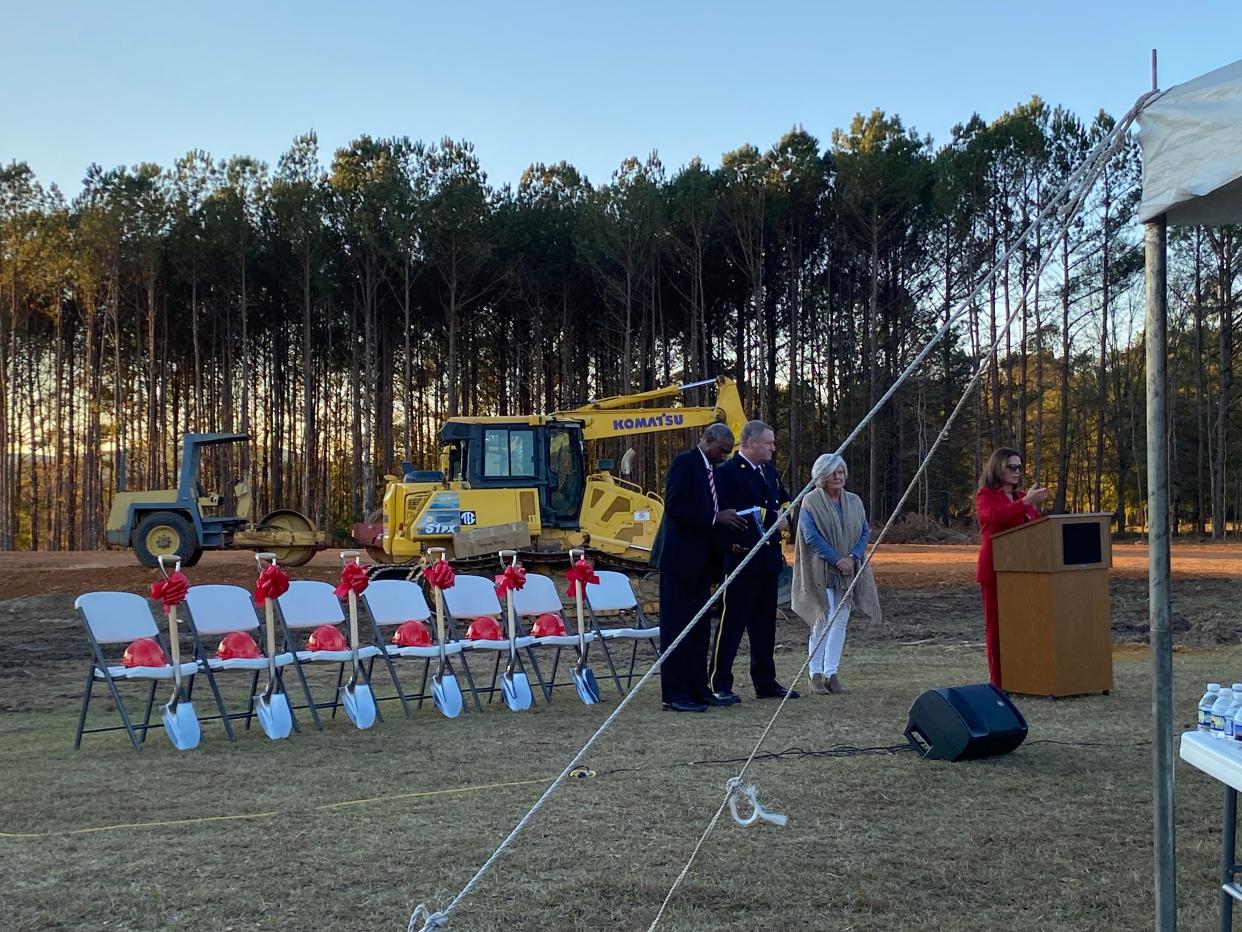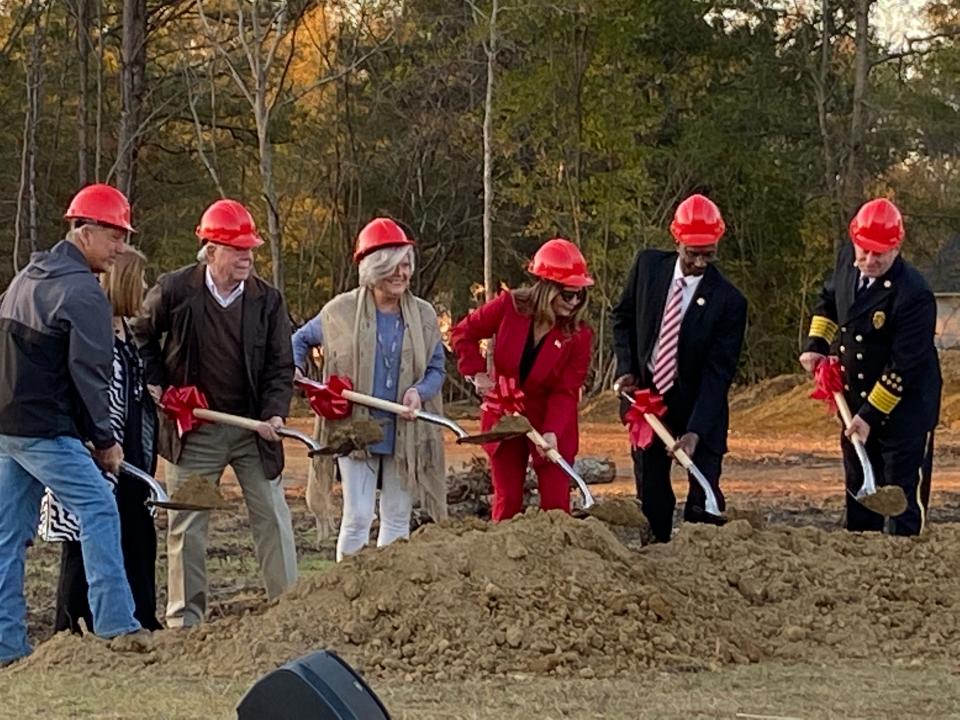USDA program helps fund rural development such as Southside fire station

Representatives of the U.S. Department of Agriculture attended a groundbreaking in Southside recently, but it had nothing to do with putting crops in the ground.
The groundbreaking was for Southside's new fire station, being constructed with a $4.1 million investment from the USDA's Rural Development program, according to State Director Nivory Gordon, that will "greatly enhance the capability of the town's emergency services."
The new station is being constructed on Alabama Highway 77 just south of the Southside Water Works, and across the roadway from New Seasons Church.
"Wherever you may be in Alabama, when you dial 911, you have an expectation that someone is going to answer that call," Gordon said. “With this investment here today, we are empowering rural first responders, and giving them the facilities that they need to help save the lives of rural residents in Etowah County.”
Southside Mayor Dana Snyder said the new fire station is needed for continued growth in the city. Fire Chief Wade Buckner said his plans for the new station's staffing should improve response time for medical emergency and fire calls. The station will have the capacity for four fire trucks in drive-thru bays, as well as quarters allowing it to be continually staffed with a mix of paid and volunteer firefighters helping to save lives and reduce property damage.

Buckner praised Southside's volunteer firefighters for their service to their community, even when it may require them to leave their homes at night more than once to respond to calls. "You'd never know who's getting a paycheck," he said.
City leaders praised Buckner's effort to find funding sources for the new station. The event Nov. 16 brought out Southside officials and firefighters, members of the local legislative delegation, county leaders and mayors and firefighters from neighboring cities.
USDA is financing this project through a loan of $4,166,000 under the Community Facilities Direct Loan and Grant Program — an investment that will benefit 8,412 residents in rural Etowah County, Alabama.
The Community Facilities Direct Loan and Grant Program provides affordable funding to develop essential community facilities in rural areas, according to a USDA press release. An essential community facility is defined as a facility that provides an essential service to the local community for the orderly development of the community in a primarily rural area and does not include private, commercial or business undertakings.
Rural Development program provides loans and grants to help expand economic opportunities, create jobs and improve the quality of life for millions of Americans in rural areas. This assistance supports infrastructure improvements; business development; housing; community facilities such as schools, public safety and health care; and high-speed internet access in rural, tribal and high-poverty areas.
Just days after the groundbreaking in Southside, the USDA announced awards of $700,000 in cooperative agreements to three organizations, part of the Rural Placemaking Innovation Challenge, in Alabama. Placemaking is a collaborative planning and technical assistance process that helps leaders from rural communities create quality places where people will want to live, work, visit and learn, according to a press release.
In Walker County, the Regional Planning Commission of Greater Birmingham will use a $250,000 cooperative agreement to coordinate outdoor recreation planning to develop an ecotourism target industry in the city of Dora, the town of Parrish and the town of Nauvoo. The commission will develop economic development strategic plans for each target community and will serve each one through a detailed survey that will evaluate ways and methods to grow an outdoor recreational economy.
In Dallas, Lowndes and Perry counties, the Conservation Fund will use a $202,396 cooperative agreement to convene a coalition of diverse partners and stakeholders to protect multiple at-risk civil rights and black history sites and find ways to maximize those assets to support greater social and cultural vitality for these rural communities.
In Dallas County, Rural Innovation Strategies Inc. will use a portion of a $202,396 cooperative agreement to partner with local leaders in Selma to lay the groundwork for equitable, sustainable and thriving live-work-play ecosystems that can support tech entrepreneurship within the town. The organization will also use this investment to perform similar work under this cooperative agreement in Pine Bluff, Arkansas, and Rutland, Vermont.
This article originally appeared on The Gadsden Times: USDA program funds more than farming, including rural fire station

